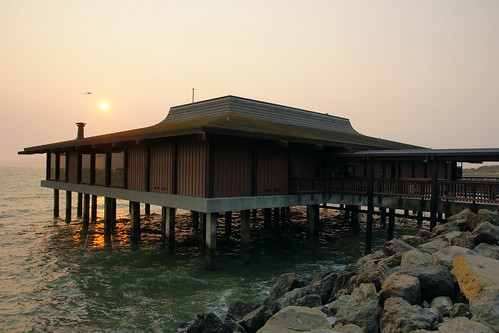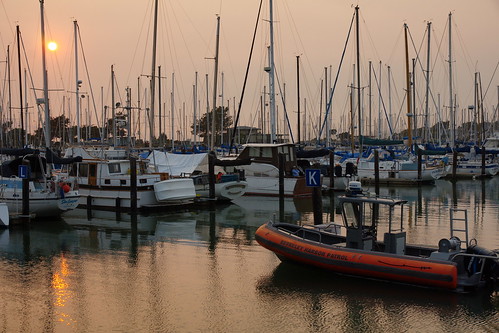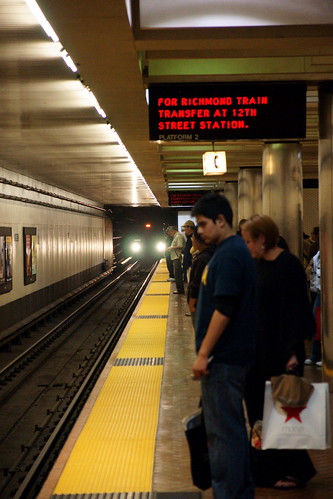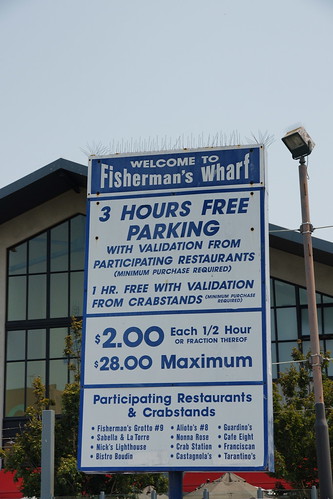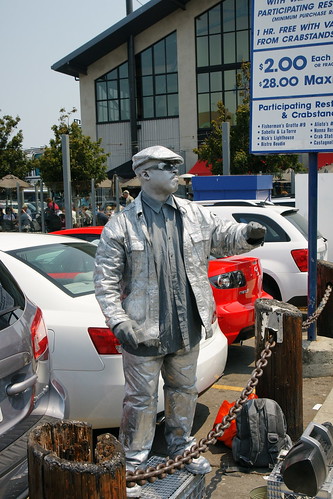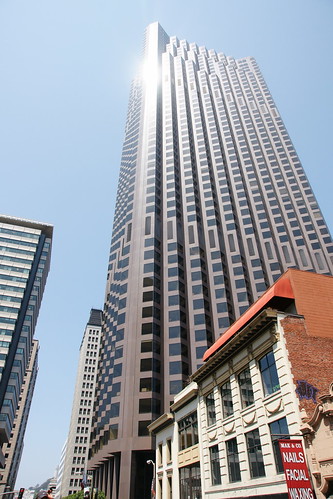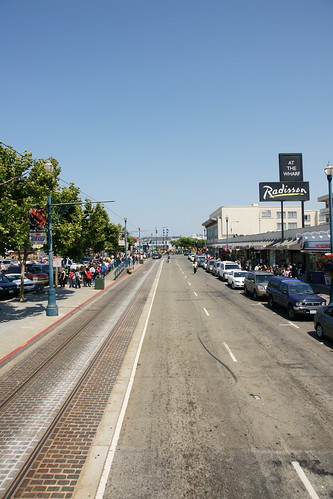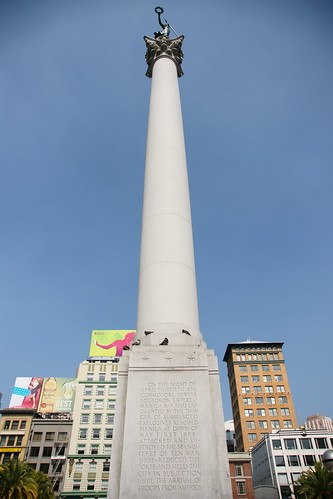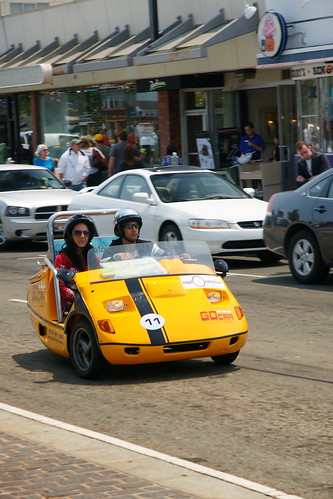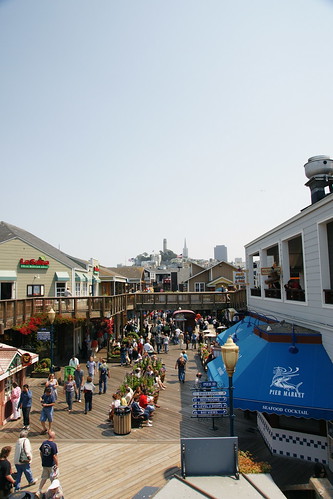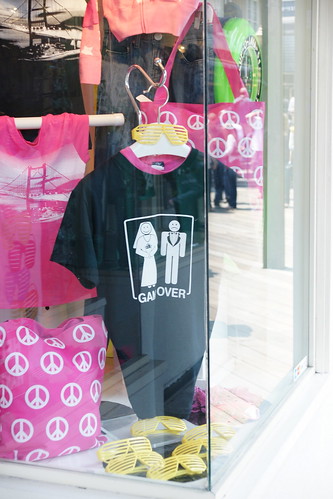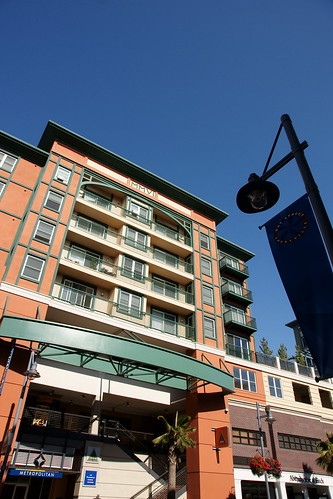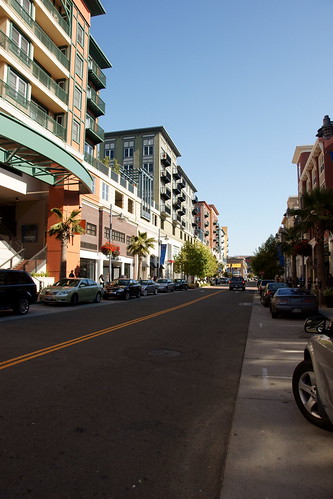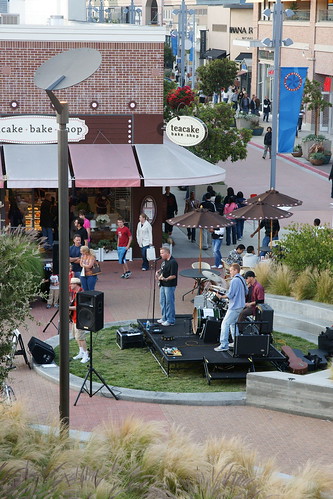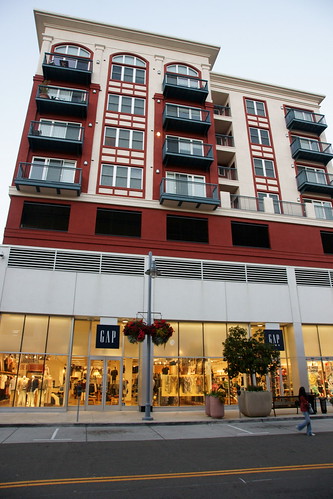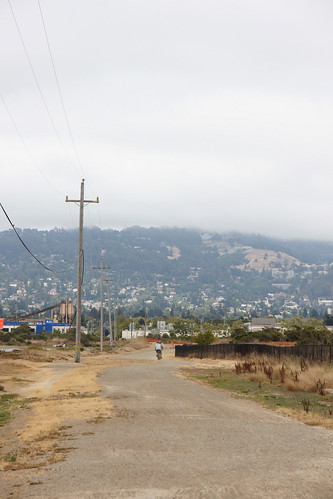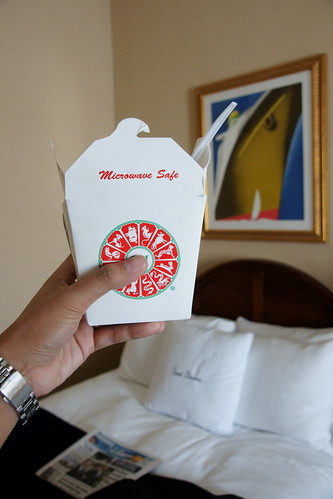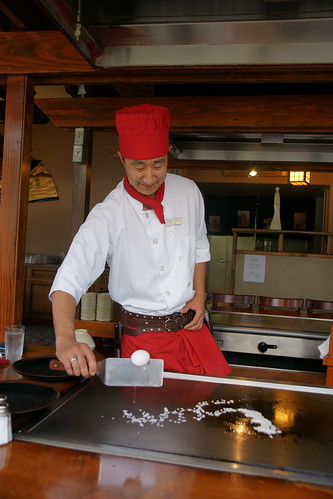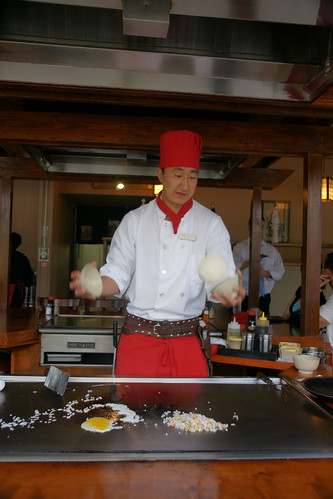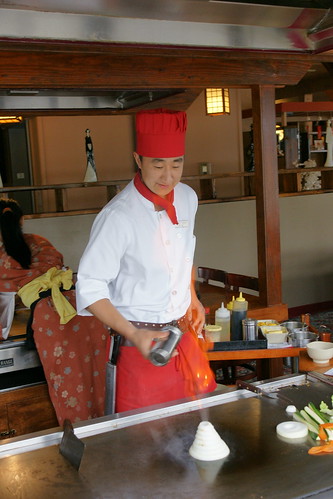Let me see if I can remember the 8 elements of thought in Critical Thinking..
There're point of views, inferences/conclusion, implications, information, assumptions, question/issue, purpose, concepts/theory. Let's see if it comes in useful.
Of Meritocracy - Singapore Story
Recent reports shows that half of the scholarship holders stays in private housing even though majority of the locals lives in their HDB flat. Naturally questions were raised as to whether Singapore is truely a meritocratic society in the Straits Times forum.
I am living a Singapore dream for some people. I was born in a lower-income family. Well.. it didn't really started off like that but the rapid pace of development and influx of foreign talents made it this way as I grow up, but that's another story altogether. Long story short. Dad poor, can't afford University fees, son worked hard (though Sucre will readily disagree with the point that I worked hard, hey it's all relative), got a scholarship to pay for his own tertiary education, comes out to serve his bond and contribute to the society. Gets married and upgrades to a 5 room flat staying with parent blah blah... If I have 3 children, I can submit my completed story to the government to sell as the Singapore story for meritocracy.
Without the scholarship, I may have to go for bursary or opt for loans which means that, instead of getting married, I'll be paying off for my loans. So what's wrong with the scholarship system in Singapore? Nothing much really... it's a very pragmatic system that awards those who do better than the rest. Remember the cat quote from Comrade Deng Xiaoping?
So the question(1) at hand, why is it that most scholarship holders come from well-to-do family.
The purpose(2) of a scholarship is to reward the scholarship holder for his/her achievements in life, be it academic or non-academic achievements. It is not suppose to finance the poor for their tertiary education or realize their dreams. Although we love success stories of people who made it with prestigious scholarships against all odds in life.
From the point of view(3) of the scholarship agencies, they select their scholars based on academic results, CCA achievements and all other merits. If a scholarship discriminates against the rich, it's a bursary meant for needy students. They need to be colour blind, ethnic blind, gender blind, religion blind, status blind etc. But the apparent imbalance in the information(4) from statistics seem to suggest that scholarship holders are chosen based on their family background, especially to those who comes from the lower income group.
The apparent imbalance in the statistics arises from the assumption(5) that in an equal society, everything should be equally distributed. Hence we should have 85% of scholarship holders staying in HDB flats rather than <50%.>
Luck is when opportunity meets the prepared. All Singaporeans have the opportunity to apply for scholarships, but not all are prepared to grab this opportunity. The equality of a meritocratic system lies in opportunities. Preparedness depends on your nature and how you were nurtured. We need luck to get our scholarships, Singapore gave us the first part, we will have to work hard for the second part.
We can choose to conclude(8) that there is nothing wrong with the system and that it is natural to have more scholarships holders coming from well-to-do families using this argument. However, it will be dangerous to justify any statistics by using these arguments without any effort to verify and strengthen our claims. If the conclusion holds, a widening income gap between the rich and poor will worsen the situation. Therefore we can infer(8) that as the gini coefficient increases (widening income gap), we will get an even larger percentage of scholarship holders coming from well-to-do families and vice versa. We can check the figures to see if the trend holds, anyone knows where to get the statistics?
Having said that, I may have gotten an overseas scholarship if say I came from an English speaking family background. That would have helped me in my SAT scores for English component and most certainly my GP to some extent. But that's the card of life I'm dealt with, it's how I play my cards that matters. And I'm still learning how to play it well.
Selected ST forum articlesAug 25, 2008
SINGAPORE EDUCATION
Equal chances for all
IN HIS letter last Thursday, 'Elitist danger in Singapore education', Mr Muhammad Faruoq Osman is wrong that only the elite minority from wealthier households is more likely to 'receive value-added education at the expense of vast amounts of public funds' in our education system.
The Ministry of Education provides adequate resources to all schools and institutions of higher learning to enable every Singaporean child to achieve his full potential. For each level, we spend what is needed to achieve a high-quality education for all. For example, we spend annually about $11,300 for each student in junior college and about $10,300 for each student in the Institute of Technical Education (ITE). All students can develop themselves in music, sports or the arts through school-based co-curricular programmes.
Students, regardless of their family background, have done well in this system. The top 5 per cent of students in the 2007 Primary School Leaving Examination did not come only from a few schools with rich parents. In fact, they came from 98 per cent of primary schools - from all socio-economic groups.
Mr Osman noted that about half of Public Service Commission (PSC) scholarship recipients lived in private property. But to conclude from this narrow and single observation that our education system is therefore less meritocratic is neither sensible nor fair. It is true that in all societies, successful parents tend to produce successful children and Singapore is not unique here. However, thousands of students who graduate from ITE, polytechnics and our universities every year do not feel less of themselves or their achievements because they have not received a PSC scholarship. All of them have succeeded by their own efforts and no eligible student is deprived from entering our top schools, institutions or gifted programmes just because his family is poor. Admission is strictly based on merit and we have a wide range of bursaries and financial assistance schemes to assist students in need.
Our education system should motivate and provide opportunities for all students to go as far as each can. We have targeted programmes to assist those from poorer families and many are moving up. One of every eight undergraduates in our public universities comes from households who live in one- to three-room flats. We should celebrate when any student excels, regardless of his background. When that student comes from a lower-income household, we applaud his efforts because he has succeeded despite difficult circumstances. But we should not cavil or be envious when students from higher income households do well in our education system. Both have earned rewards based on personal effort and merit. And we hope both will feel a duty to contribute back to society to maintain our system that provides opportunities for all.
Jennifer Chan (Ms)
Director, Corporate Communications Division
Ministry of Education
Elitist danger in S'pore education
I READ with interest Mr Zakir Hussain's article last Friday, 'Meritocracy's hidden danger' which gives a revealing insight into Singapore's brand of meritocracy.
The article states that about 53 per cent of Public Service Commission scholarships go to those who live in private property.
While there is general acquiescence that these scholarships are indeed awarded on the basis of academic performance and individual achievement alone, the preponderance of the socially privileged among them merits scrutiny.
These students largely hail from the crème de la crème of schools and have benefited from the various schemes that cater to the academically talented, such as the Education Ministry's Gifted Education Programme.
Their dominant social status arising from higher household incomes suggests that they possess the cultural capital required to 'make it' in life, as nurtured by their parents who are likely to have attained qualifications at the tertiary level.
In their scholastic journey, this group of students are likely to be enrolled in the Integrated Programme where, since 2004, they have been allowed to bypass the O-level examinations, in favour of taking the A Levels at the end of a six-year course.
This is a manifestation of greater elitism being built into the education system, where the same elite minority continue to receive value-added education throughout their schooling years at the expense of vast amounts of public funds.
As a result, Singapore's education system, which has always been held up as a model of social mobility for all, is attenuated because one group benefits from a distinct advantage over the others. The public perception that there is an inherent link between students from wealthier households and high academic achievement is pervasive.
Over the years, there have also been concerns about the attitudes of these students who are among the best and brightest and who are likely to secure positions of pre-eminence in society in the future. The raison d'�tre for this stems from the fact that there have been several scholars who are known to have broken their government bonds in favour of more lucrative job offers, which smacks of individualistic competition and selfishness, among other factors.
There is the danger of a dichotomy developing in an increasingly stratified Singapore society, exacerbated by widening income gaps where the mentality of 'us versus them' prevails.
By then, the people's faith in our so-called meritocratic system would have shattered.
Muhammad Farouq Osman
Funny stuff
CB - "There's TGIF (Thank god it's Friday), why isn't there OSIM?"
Me - "OSIM?"
CB - Oh shit it's Monday!
Labels: Blog - Essays
On the streets of San Francisco and more
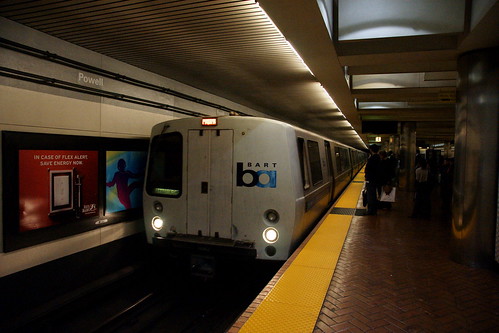
BART system, Bay Area Rapid Transit
They have an interesting train system that we can learn from.
If you think Orchard Road parking is expensive, wait till you park here.. in USD!
Street art
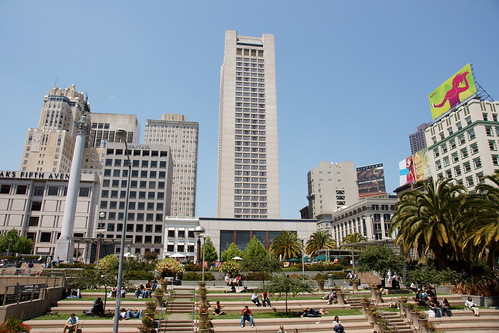
What square is this? I can't remember... haha
I'm not into street photography or architecture.. so this is the best of the lot I have
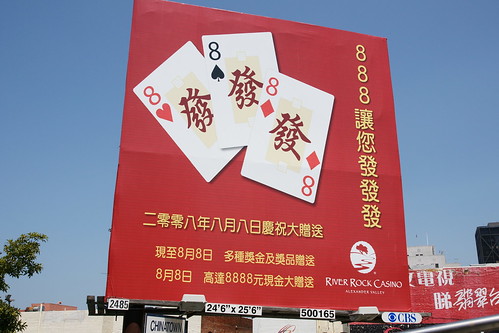
There's a huge Chinese community there
Road, tram etc... blue sky.. no clouds.. nice

Many ships sailed here in the past and were abandoned as the sailors went digging for gold during the gold rush..
Monument
Birds in the city live with humans.. taken with CZ16-80.. not even a telephoto lens!
The next time I'm there, I'll be riding one of these on the road
Giant gay crab
One of those touristy spot
I'm almost there..

What a coincidence! I just got a lens that looked like that yesterday and it really costs $. Now I'll try to sell of 4 lenses to pay for part of it.
From WhatTheDuck
Bay street series
Residence?
Different parking system
Always clear skies
Arts festival performances
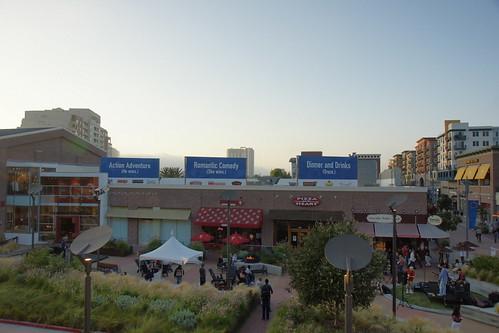
Too much of DRO
GAP
Hotel Series

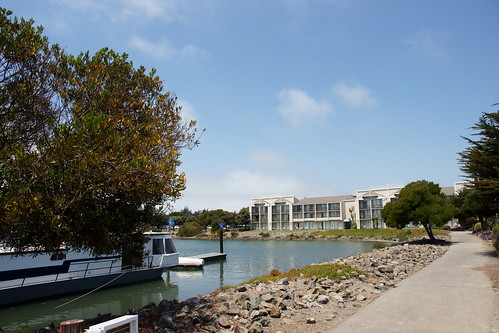
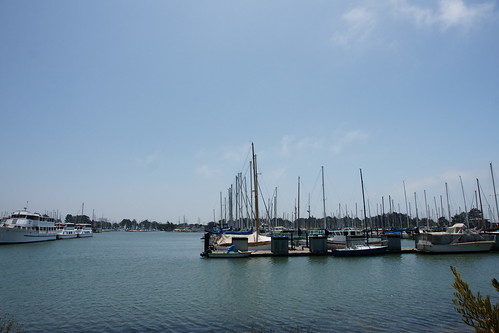

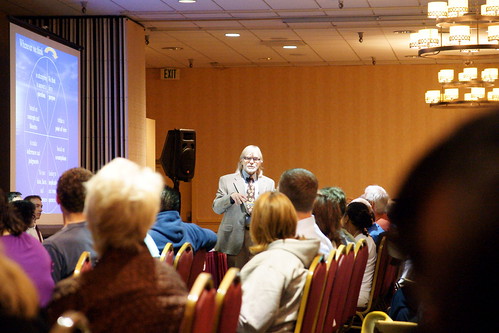
RP himself
Others
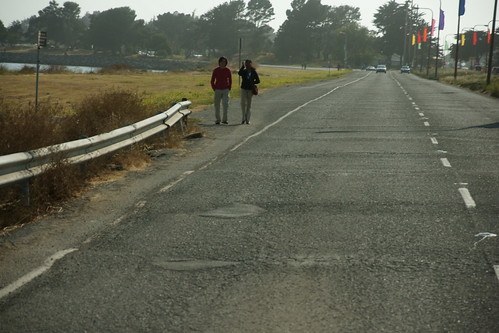
Two hour walk...
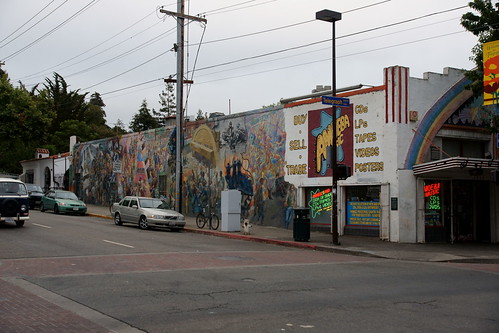
Telegraph street and graffiti
Chinese food delivery, cheapest around
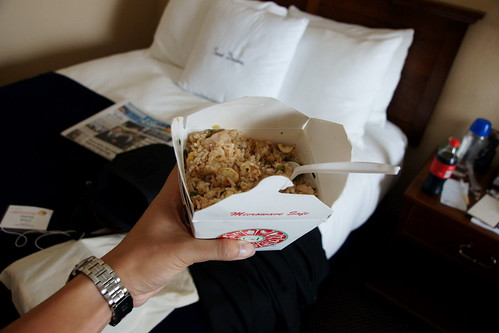
This is salted fish fried rice
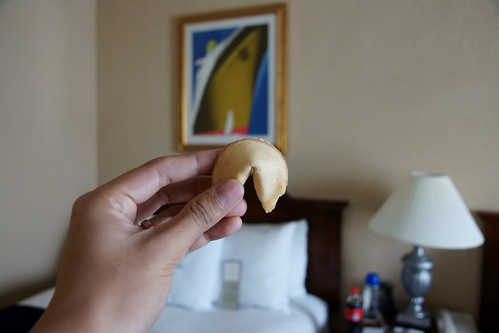
My first fortune cookie without fortune inside. The background is the hotel room
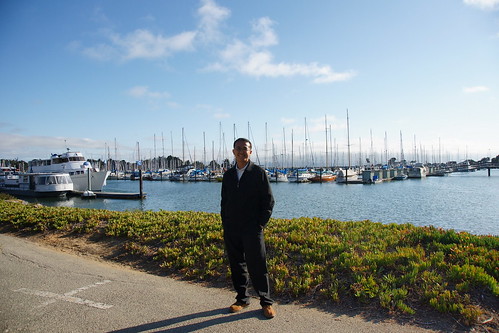
Strolling around the area
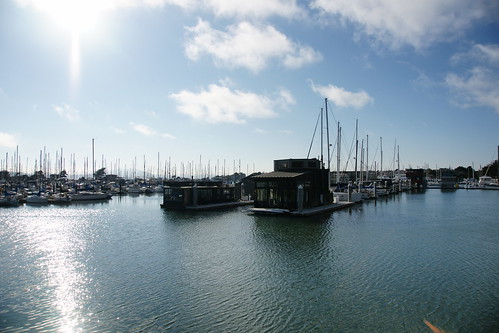
Peaceful place with great weather
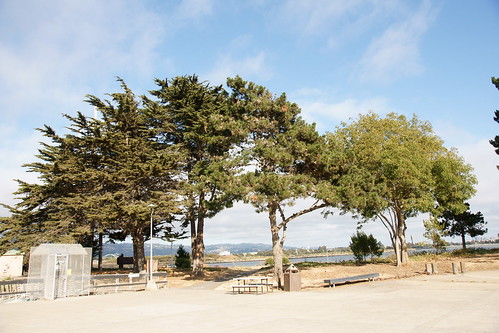
Teppanyaki with performance - egg writing
Rice ball tossing
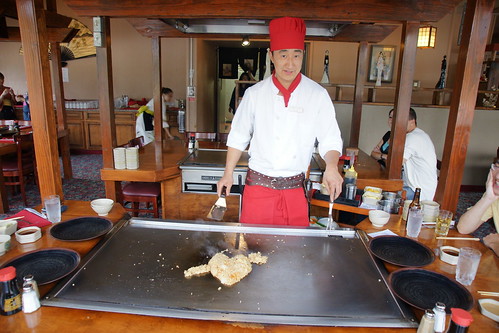
Love at first sight fried rice
Volcano rings
